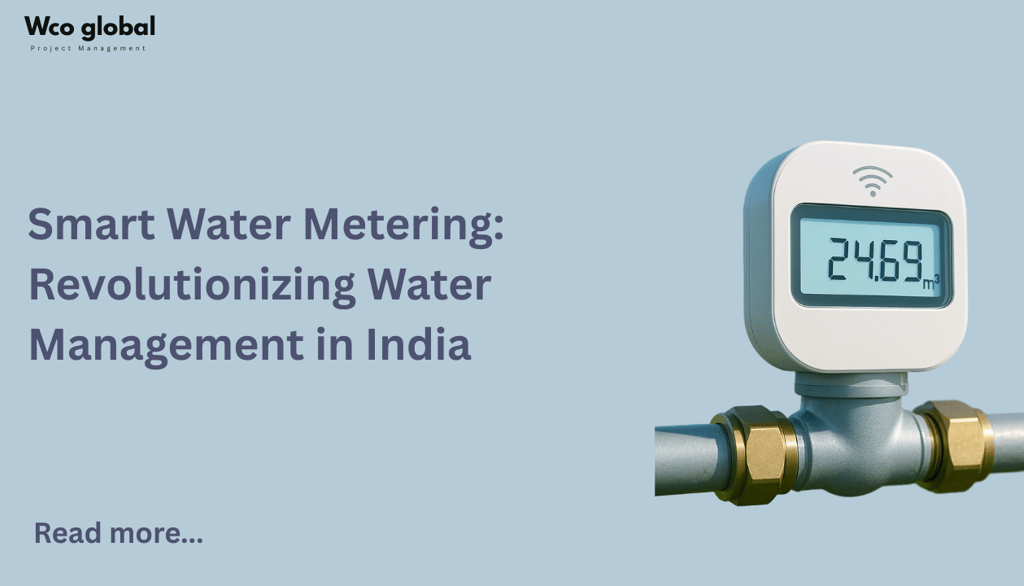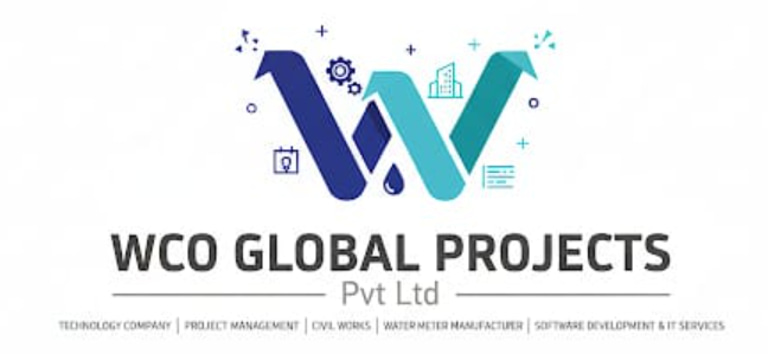Smart Water Metering : Revolutionizing Water Management in India
Discover how smart water metering is revolutionizing water management in India. Learn about advanced technologies, benefits, real-world case studies, and the path to sustainable urban infrastructure.
WCO GLOBAL
5/8/20242 min read


As India faces increasing water scarcity due to rapid urbanization and population growth, efficient water management has become imperative. Traditional water metering systems often fall short in providing accurate, real-time data, leading to inefficiencies and water wastage. Smart water metering—a transformative solution offering precise monitoring, leak detection, and enhanced billing accuracy.
What is Smart Water Metering?
Smart water meters are advanced devices that measure water consumption using technologies like ultrasonic sensors, electromagnetic fields, and Internet of Things (IoT) connectivity. Unlike conventional meters, they provide real-time data, enabling utilities and consumers to monitor usage patterns, detect leaks promptly, and make informed decisions about water conservation.
Types of Water Meters
Mechanical Water Meters: Traditional meters that use moving parts to measure flow. While cost-effective, they may lack precision over time.
Ultrasonic Water Meters: Utilize sound waves to determine flow rate, offering high accuracy and no moving parts, reducing maintenance needs.
Electromagnetic Water Meters: Measure flow using magnetic fields, suitable for various water qualities and providing reliable data.
Smart Water Meters: Incorporate digital technology and connectivity features like LoRaWAN, NB-IoT, and RF communication for remote monitoring and data analysis.
Benefits of Smart Water Metering
Accurate Billing: Ensures consumers are charged based on actual usage, promoting fairness and transparency.
Leak Detection: Identifies leaks promptly, reducing water loss and preventing potential property damage.
Resource Conservation: Encourages mindful water usage, contributing to sustainability efforts.
Operational Efficiency: Enables utilities to manage supply networks effectively, reducing non-revenue water and operational costs.
Smart Water Metering in India
India's push towards smart cities and sustainable infrastructure has accelerated the adoption of smart water metering. Government initiatives like AMRUT 2.0 and the Smart Cities Mission emphasize the integration of smart technologies in urban water management.
Cities like Thane, Hyderabad, and Shirpur have implemented smart water meters, witnessing improvements in water conservation and billing accuracy. For instance, Shirpur's adoption of smart meters led to a 33% reduction in daily water supply and streamlined billing processes.
Challenges and Considerations
While the benefits are substantial, challenges such as initial investment costs, public awareness, and infrastructure readiness need addressing. Collaborative efforts between government bodies, utilities, and technology providers are essential to overcome these hurdles.
The Road Ahead
The future of water management in India lies in embracing smart technologies. With the smart water metering market projected to grow significantly, stakeholders must prioritize implementation strategies that are inclusive, cost-effective, and environmentally sustainable.
Frequently Asked Questions (FAQs)
Q1: What is the primary function of a smart water meter?
A smart water meter measures water consumption in real-time, allowing for accurate billing, leak detection, and efficient water management.
Q2: How does smart water metering contribute to water conservation?
By providing real-time data, smart meters help identify excessive usage and leaks, enabling prompt corrective actions and promoting responsible consumption.
Q3: Are smart water meters suitable for residential areas?
Yes, smart water meters are ideal for residential, commercial, and industrial applications, offering scalability and adaptability to various settings.
Q4: What technologies are commonly used in smart water meters?
Technologies like LoRaWAN, NB-IoT, RF communication, and ultrasonic sensing are commonly integrated into smart water meters for enhanced functionality.
Q5: What are the challenges in implementing smart water metering in India?
Challenges include high initial costs, infrastructure limitations, and the need for public awareness and acceptance.
Implementing smart water metering is a significant step towards achieving sustainable water management in India. By leveraging advanced technologies, we can ensure efficient water usage, reduce wastage, and build a resilient infrastructure for future generations.
Contact us to know more

Let’s Keep in Touch
contact@wcoglobal.in
Subscribe to our newsletter
+91 8287488244
